
Advanced Hand Sewing Stitches
Hand sewing is an invaluable skill that allows for precision and attention to detail in creating beautiful, long-lasting garments and crafts. While basic stitches such as running stitch and backstitch serve as the foundation of hand sewing, mastering advanced hand sewing stitches can elevate your projects to a new level. These stitches are perfect for adding decorative elements, reinforcing seams, or joining fabrics in unique and artistic ways.
Blanket Stitch
The blanket stitch is a versatile and decorative stitch that is often used for edging and finishing raw fabric edges, as well as for attaching appliqué or patches. This stitch creates a line of slanted stitches that resemble the teeth of a blanket. To create a blanket stitch, start by bringing the needle up through the fabric, then make a small diagonal stitch to the right. Loop the thread under the needle and pull it through the fabric, creating a secured stitch. Repeat the process, making sure to keep the stitches consistent in size and spacing.
Herringbone Stitch
The herringbone stitch is a beautiful decorative stitch that looks like a series of interlocking “V” shapes. It is often used to add texture and interest to seams and hems. To create a herringbone stitch, bring the needle up through the fabric, then make a diagonal stitch to the right. Come up through the fabric a short distance away on the left side and make another diagonal stitch, crossing over the first one, to create a “V” shape. Repeat this process, alternating sides to create a row of interlocking “V” stitches.
French Knot
The French knot is a small, raised ball of thread that adds dimension and interest to embroidery and other fabric embellishments. To create a French knot, bring the needle up through the fabric. Holding the thread taut with your non-dominant hand, wrap it around the needle’s point twice or three times, depending on the desired size of the knot. Insert the needle back into the fabric close to where it came up, and gently pull the thread taut while guiding the knot down onto the fabric. Secure the knot by making a small stitch next to it.
Fly Stitch
The fly stitch is a versatile stitch that resembles a small flying bird with outstretched wings. It is often used to create decorative borders, floral designs, or even to suggest bird motifs. To create a fly stitch, bring the needle up through the fabric at the starting point. Make a small diagonal stitch towards the right. Come up through the fabric a short distance away from the end of the first stitch, and make another diagonal stitch pointing towards the center of the first stitch, creating a ”V” shape. Repeat these steps, adjusting the width and length of the stitches as desired.
Conclusion
Mastering these advanced hand sewing stitches opens up a world of possibilities for your sewing projects. Whether you want to add intricate detail or creative embellishments, these stitches allow for endless creativity. Practice and experiment with each stitch to develop your skills and discover unique ways to incorporate them into your sewing projects. With time and patience, your hand sewing will be transformed into a true art form.
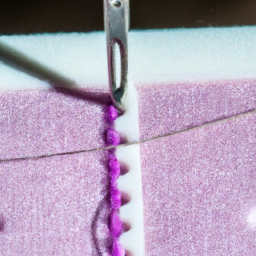
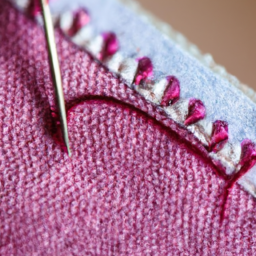
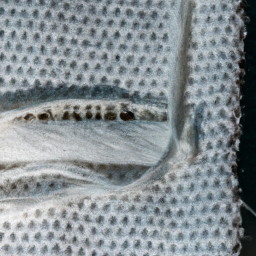
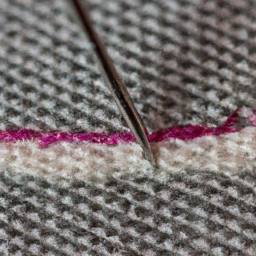
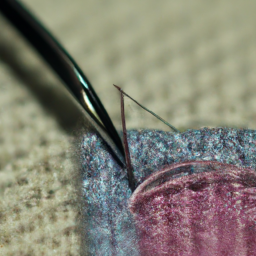
Great article!
This is a great resource for anyone looking to hone their hand sewing skills and take their stitching to the next level! With so many useful stitches being discussed, this article is sure to be a valuable guide to anyone wanting to refine their skills and make more complex pieces.
Amazing tips! Amazing article! Here is an invaluable resource for those looking to further their hand sewing skills and techniques. With so many unique techniques discussed, this article provides a great reference for anyone to explore and further their knowledge of advanced hand sewing stitches.
Awesome resource! Learning these advanced hand sewing stitches will be a great way to take your sewing projects to the next level. Highly recommended if you’re looking to deepen your understanding of stitching!